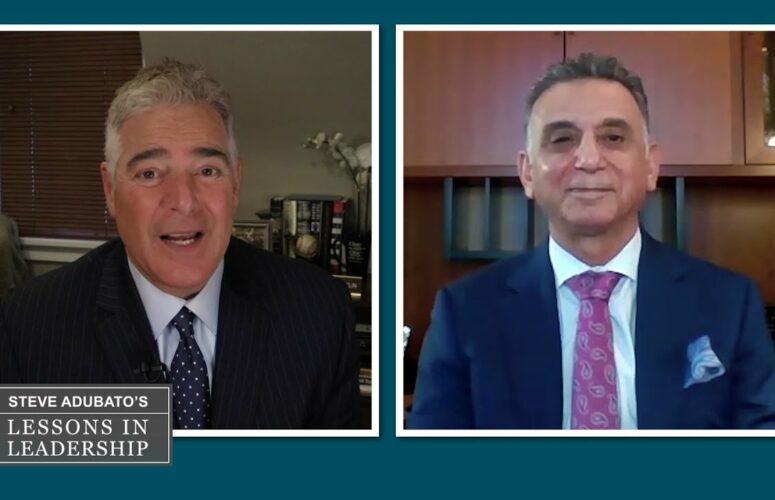General Business
Keys to Building Lasting Relationships
Michellene Davis, Esq., President & CEO, National Medical Fellowships and Jonathan Holloway, EdD, President, Rutgers University
By Steve Adubato, PhD On Jul 1, 2022Steve Adubato and Mary Gamba are joined on Lessons in Leadership by Michellene Davis, Esq., President & CEO, National Medical Fellowships, who talks about racial equity in health and overcoming adversity through grit and perseverance. Then, Steve talks with Jonathan Holloway, EdD, President, Rutgers University, about the importance of staying calm, especially when faced with challenges.
Every successful leader understands the importance of making team members and key stakeholders feel valued and appreciated, which is a key to relationship building. This involves empathy, actively listening, resolving conflict, being solution-oriented, maintaining a positive attitude and offering specific and constructive feedback. Whether you lead a team of 10 or 100 people, and regardless of the products or services you offer, what sets you and your organization apart from the pack is your ability to build relationships with those in your orbit. With that said, consider the following keys to building lasting relationships:
- Be helpful. This sounds so simple but having a genuine willingness to help others is the foundation to successful relationships. For example, you can ask someone on your team what you can do to help make their job more rewarding. Or, ask a current or prospective client how you can better help them accomplish their objectives. Sometimes this means referring them to someone else but doing so reinforces your commitment to them and their overall satisfaction. Your customers will appreciate you for it and it will pay off in the long run.
- Interactions equal opportunities. Think about how many times you have passed a colleague in the hallway, and don’t stop to say hello. Or, how many events or dinners you have attended where you simply just went through the motions on auto-pilot, talking with only those you already knew? Instead, if you view every team member or stakeholder interaction as an opportunity to build a long-lasting relationship, you would be surprised at the results.
- Exceed expectations. If you have a dissatisfied team member, client, or key stakeholder, offer a solution that exceeds their expectations. In order to do this, you must take the time to ask open-ended questions to find out exactly what went wrong and then use this information to get creative, offering a solution that truly lets them know you heard them and care about earning back their trust. When mistakes happen and things inevitably go wrong, the key is to see these times as opportunities to build loyalty.
- Let them know you are thinking about them. Especially in an age of COVID-19, with people working remotely or in hybrid situations, it is more important than ever to let your team and key stakeholders know how valuable they are. Send a random e-mail or text to a team member “just because,” to say you appreciated their input in a meeting. Or, pick up the phone and call a customer to touch base and ask how their family is doing. These little touches go a long way when building relationships.
- Be present. Give your team and key stakeholders your undivided attention. This means no multitasking. No checking your e-mail or text messages while on a call or virtual meeting. No looking at your computer when someone walks into your office to have a conversation. When we are not truly present, we miss out on opportunities to connect with others, not to mention we turn people off in the process.
- Avoid too much information (TMI). We have all been there when a salesman tries to “pitch” us on a product or service, telling us all they know with tons of figures and statistics. Numbers can be numbing. Instead, show your key stakeholders how much you care about them and their point of view by having an engaging discussion and finding out as much as you can about what matters to them. Leave out the PowerPoint and detailed facts. When building long-lasting relationships, less is more.






